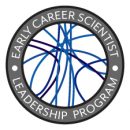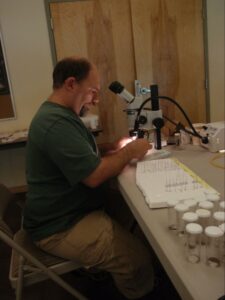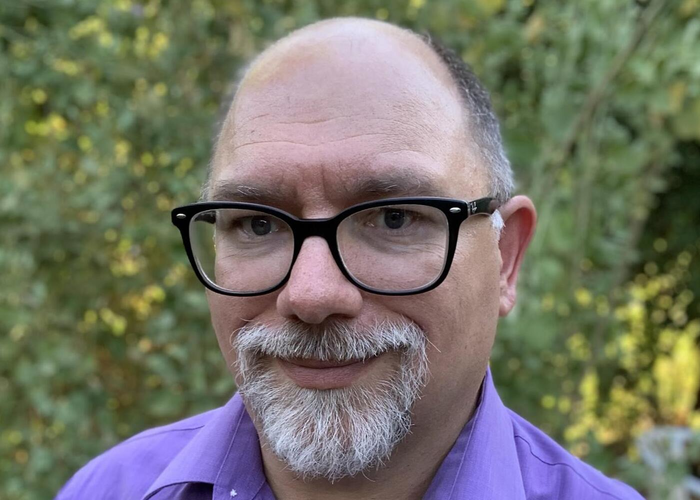
In the Decoding Life series, we talk to geneticists with diverse career paths, tracing the many directions possible after research training. This series is brought to you by the GSA Early Career Scientist Career Development Subcommittee.
Dr. McGlynn received his PhD in Environmental, Population, and Organismic Biology from the University of Colorado. He was an Assistant Professor of Biology at the University of San Diego before moving into his current position as the Professor of Biology at CSU Dominguez Hills and Director of the CSU Desert Studies Consortium. He also works as a research associate at the National History Museum of Los Angeles County, maintains a blog, and has authored a book on college science teaching. He shares his experience navigating a career in higher education, as well as discussing how to maintain work-life balance and the struggles of navigating a job search with a family.
Did you always know you wanted to teach at a teaching-focused institution?
During my undergraduate education, I had an epiphany of wanting to study ecology and evolution. I went to graduate school with the thought that science is really cool, and I wanted to become a scientist. In graduate school, I learned more about the academic culture, and over the years, I settled into an understanding that I wanted to be at a teaching-focused institution.

Was there a specific reason you chose this career path?
There was a specific reason I chose this career path—I didn’t want to run a lab where my grantsmanship would be responsible for supporting the livelihoods of people I work with. Additionally, I was drawn to this career path because of the stability of tenure. I was also drawn to this idea that life in a teaching-focused institution would be less stressful, with better work-life balance and less worrying about research.
It took me several years to realize I was wrong. It’s important for me to write grants, to pay undergraduates who work with me, and for students in my department to have research opportunities. Additionally, it’s just as busy and stressful at a teaching-focused institution compared to a research-focused institution. Some institutions may be more stressful than others or have a healthier work-life balance. The type of institution isn’t the deciding factor nearly as much as work culture. My reasons for wanting to be at a teaching-focused institution when I was a graduate student and postdoc were entirely mistaken because I didn’t understand the job. But I love where I’m at now, and I like the student-centered nature of my work.
Is there anything you wish you knew or learned to prepare you better for your current position?
I wish I learned how to run a lab better. Being a principal investigator, you almost need an MBA to run a lab, and managing both the lab and people is really difficult. No one trained me on how to manage people, and I think my biggest mistakes along this career path were when I mismanaged people. I also wish I had more explicit training and workshops in grant writing. It took me several years to figure out how to write grants. Training wouldn’t make the process inherently easier, but it would alleviate some stress.
How did having a family impact your job search?
When choosing my postdoc, I was fortunate that my spouse chose to go where I went. Then, when I moved to my visiting assistant professorship, I was able to choose a place that was geographically near where she wanted to do her master’s degree. As I was looking for faculty positions, I applied for jobs all over and was extraordinarily lucky to land a position in her hometown.
Before I came up for tenure, I had a big disagreement about family leave being denied, even though my request met the conditions provided by the university. This led to conflict, and eventually, my dean reversed my department’s recommendation for tenure. But my son is more important than the job, and I have no regrets there. When I had to move after being denied tenure, it was an incredible challenge for us to identify our priorities. Fortunately, we landed good positions in the same place at the same time, and we avoided financial challenges or personal choices about whose career mattered more. I happened to get lucky—twice—and I recognize it.
How has networking and mentorship played a role in your career?
Networking is foundational for everything because so much of science is collaborative. Opportunities are based on connections. My approach for getting to know people has never been, “What can I get from this person?” I want to know my peers and become genuine friends with them. Mentorship is also really important and a source of wisdom. Good mentors don’t tell you what to do but ask you the questions other people aren’t asking. They help you realize what matters and could impact your choices, informed by their own experiences. If you’re looking for a mentor, find someone who has already been where you want to go. You want to find someone who asks, listens, supports your professional goals, and works with you to help you find your career goals.
How important is time management in your role?
Good time management is a critical skill because your greatest resource is your own time. The difference between now and graduate school is that the stakes are higher, and I’m expected to do more. However, throughout graduate school I became more efficient at these things. I’ve never been good at managing my time compared to others, whether related to mental health and anxiety, or procrastination of something I am scared to do. Time management is a constant struggle. With that, people may physically be at work 60+ hours, but how much work are they doing? Over time, I’ve realized when I put in 35-45 hours per week but genuinely focus on work, I get a lot done. Another thing that helps my time management is taking time for myself. When I exercise before starting my day, I am more energized and focused for the rest of the day.
How do you maintain a work-life balance with a family?

When I look back at how much time I’ve spent as a parent, I have no regrets. I didn’t miss out on big parenting moments. I’ve spent a lot of time with my son, and that has always been a priority. Could I have had more publications or done things differently? Maybe, but that is where I chose to draw the line. At my current institution, I work with people who value that we all have lives separate from work, and I designed my professional goals to maintain the work-life balance I want.
I try to start work in the morning on time. At five o’clock, I’m done, though if I’m excited about something I might pick it up that evening. I’ve learned to manage my time well enough that if anything’s on fire it gets done right away; everything else can wait until tomorrow. And there are some things that never get done because I’ve decided it’s not going to happen. I make a point to look at my calendar, decide where my chunks of time go, and how they align with my priorities. I don’t spend time on something if I don’t place it as a priority and as my career has evolved, my priorities have shifted.
About the author:

Michelle Jonika is a PhD candidate at the Department of Biology at Texas A&M. She is a member of the Career Development Subcommittee.













